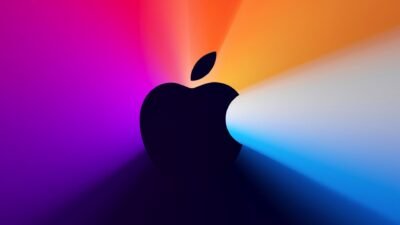Apple’s market value of over 3 trillion U.S. dollars, an important promoter of huge stock repurchases

[ad_1]
Apple has set a new milestone, becoming the world’s first company with a market value of $3 trillion, Although it did not hold at the close.
In the past few years, Apple has been the largest repurchase of S&P 500 index stocks. As of last September, the 2021 fiscal year, Apple invested $85.5 billion in stock repurchases and spent $14.5 billion to pay dividends. Apple spends more on stock repurchases than other companies that repurchase a large number of stocks, including Facebook parent company Meta, Google parent company Alphabet, Bank of America, and Oracle.
The value of stock buybacks Stock repurchases can reduce the supply of stocks in the market, thereby pushing up the company’s stock price, and actually returning funds to investors at a higher stock price. In addition, the reduction of outstanding shares can increase earnings per share, which is an indicator used by many value-based investors to judge a stock. Apple started paying quarterly dividends and repurchasing shares in March 2012. According to data provided by S&P Global Markets Financial Intelligence, Apple has spent more than $467 billion on stock repurchases since then until last summer. S&P Global Markets Financial Intelligence calls Apple the “model” of stock repurchases.
Apple’s $3 trillion journeys in market value
In fact, since the market value of Apple first reached $1 trillion in August 2018, its stock price has risen by 252%, but its market value has only increased by about 200%. This difference is a direct result of Apple’s repurchase program, which has reduced Apple’s outstanding shares from approximately 19.4 billion shares at the end of June 2018 to approximately 16.4 billion shares currently.
Because Apple has a huge cash flow and is willing to return this money to investors, investors are beginning to see it as a “safe asset” or high-quality transaction.”The recent stock price increase may reflect a certain extent that for a stock whose performance is roughly the same as that of the stock market, investors expect its demand to be relatively stable, and its cash flow and capital return will continue to be strong.” Bank of America Securities analyst Wams· Mohan (Wa MSI Mohan) said in a research report in December. Is the huge return on capital sustainable?
For investors, Apple’s huge cash flow is one of the reasons they believe that the company can continue to invest a lot of money in stock repurchases while increasing its employees and investing in research and development. Apple’s financial report shows that its cash reserves in fiscal 2021 reached 104 billion U.S. dollars, leading the industry. In contrast, the same tech giants Microsoft and Alphabet’s cash flow in the most recent fiscal year was approximately $77 billion and $65 billion, respectively.
Moreover, Apple’s ability to create free cash flow allows them to continue to implement capital return plans, even when it achieves its goal of “net cash neutrality.” Apple CEO Tim Cook has said that “net cash neutrality” means that Apple’s total cash size is equal to its total debt.
In December 2017, under a new tax law that allowed Apple to transfer most of its cash reserves from overseas back to the United States, Apple stated that it plans to no longer maintain large cash reserves and gradually return them to investors. Since then, the pace of Apple’s repurchase has immediately accelerated, from $33 billion in the fiscal year 2017 to $73 billion in the fiscal year 2018.
Apple’s CFO Luca Maestri said that as of October last year, Apple had $66 billion in net cash, which was lower than the net cash of approximately $163 billion when the decision was announced. In November last year, Bernstein analyst Toni Sacconaghi (Toni Sacconaghi) predicted that Apple could continue to repurchase 3% to 4% of outstanding shares without assuming net debt until 2026. In recent years, Apple has borrowed to fund its capital return program, but these expenditures have been offset by its cash reserves. Apple usually updates its shareholder return plan to investors when it announces its second-quarter financial results in April. Citi analysts predict that Apple will announce another $90 billion in stock repurchases and increase its dividend by 10%.
[ad_2]
Research Snipers is currently covering all technology news including Google, Apple, Android, Xiaomi, Huawei, Samsung News, and More. Research Snipers has decade of experience in breaking technology news, covering latest trends in tech news, and recent developments.










